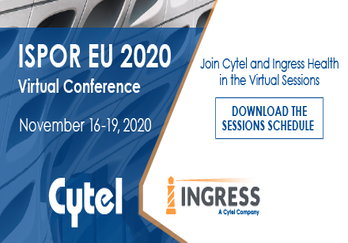In this two-part blog series, we interview Bart Heeg, Vice President HEOR and Founder at Ingress Health (A Cytel company). Bart provides us insights on the trends in HEOR and explains why Bayesian methods are also important for Health Economics. Read Part 1 here.
What changes have you observed in the use of HEOR over the past decade?
When I was doing my Master’s thesis in Health Economics, the university had its first Health Economics professor as it was a relatively young field. In Health Economics, especially in modeling, we need to combine clinical evidence from the trials, quality of life evidence using methods from psychology, and economic evidence. Statistical techniques are required to use extrapolations to assess what the drug does and gauge the expectation of how the drug will perform. There are many different disciplines that come together in health economics, and back in the days, the guidance and the requirements were not very strict. Over the years, especially with NICE setting up guidelines in the UK on how to do modeling, literature reviews and survivor extrapolations, regulations became way stricter and a lot better.
I think we are shifting to even more advanced analysis. The requirements are restrictive, but also the analyses that are needed are potentially more complex, which is more appropriate to answer the question. For health economic modeling, progression-free survival is not the most important endpoint, it is the overall survival. Often, overall survival in oncology submissions is rather immature and then you need to decide how to extrapolate this image of overall survival benefit in a clinically plausible way. A possible solution here is to use external data, for example, real-world evidence. We are developing the DIVE framework for survival extrapolations which suggests using, and provides guidance on how to use, direct evidence, indirect evidence, evidence for validation and evidence for elicitation with the aim to end up with more clinically plausible extrapolations for health economic purposes.
The whole industry seems to be talking about Bayesian methods right now. How does your work overlap with this trend, if at all?
Bayesian methods are important for both trial designs and Health Economics. Currently, there is a need to extrapolate trials and if a trial is immature, then these extrapolations are rather uncertain. I think we are headed towards a time when evidence from the clinical practice or historical trials will be used to guide these extrapolations. This can be done only in the Bayesian way. Network meta-analyses (NMA) for health authorities like NICE/CADTH are typically already done in a Bayesian framework. Historically, NMAs consider only RCTs, but now there are also methods developed to incorporate real-world evidence data in NMAs in, for instance, Bayesian hierarchical models. Hence, the use of Bayesian methods for Health Economics is most likely to increase.
How will RWA transform oncological research?
The target trial emulation approach is a novel approach towards the design of observational analyses that was developed by Miguel Hernan and Jamie Robins who are professors at Harvard University. Cytel is conducting pilot projects that explore the application of this framework in collaboration with Miguel Hernan. In the past, if people compared the effectiveness of two drugs based on real-world evidence, it was observed that those comparisons were often flawed. In layman’s terms, trial emulations are based upon a study protocol for the hypothetical randomized trial that one would like to conduct and a study protocol describing how this hypothetical trial will be emulated using observational data. It is a much better methodology than what was being used in the past for comparative effectiveness analyses based on real-world evidence. In future these methods could also be used for assessing the comparative effectiveness and cost-effectiveness of therapies that have a provisionary reimbursement status with requirements to collect real-world data for the final reimbursement decision.
Click below to download our full list of sessions at ISPOR EU.




